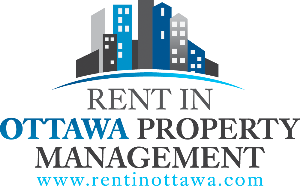How to Keep Renters Happy
March 17, 2025
You just received a lease agreement for a place you love and are ready to sign away. Although it might be tempting to quickly sign and return the document to get the home you desire, don't jump in before reading it through. Here are seven crucial things to look for before signing a lease agreement.
A standard lease is required in Ontario for most residential tenancy agreements. This helps protect both you and the landlord. However, it also means that your landlord cannot create or add in any clauses that the government does not approve.
It's important to have a clear understanding of what is included in the standard lease so you can pinpoint any invalid clauses that are not legally binding. The most common terms that landlords try to get away with (but are in fact void) include prohibiting pets, not allowing guests or roommates, and damage deposits. If you're unsure whether the lease or any of the added terms are valid, you might want to get legal advice before signing.
Not all landlords require a rent deposit, which is equivalent to one month's rent paid upfront and used towards your last month's rent after you provide notice. To ensure you have enough money on hand to pay for a deposit, read the lease carefully to understand what you are required to pay upfront and when that amount will be applied to the rent.
If you own a vehicle, another thing to consider before signing a lease agreement is if parking is available. Not all units will come with a parking spot, and not all cities have available on-street parking options. It's also important to understand how much parking will cost you if a spot is included in the lease and whether it's cheaper to park on the road if street parking is available.
Depending on the type of lease you are signing – fixed tenancy, month to month, the termination clause may be different – you'll want to have a clear understanding of the termination clauses that apply to you. Specifically, you want to know if there will be any penalties owed and if a landlord can also terminate the lease agreement and for what reason.
There might be some legal conditions added that you are not entirely comfortable with, so it's wise to read over this section carefully. For instance, the landlord may request that you don't have certain pets. Although pets are permitted by law, it could be a special request due to another person living in the property who is allergic. And of course, you wouldn't want to give up your pet or live amongst someone who is constantly complaining or sick because of your furry best friend.
Before you sign on the dotted line, you'll want to know exactly what you are responsible for. For example, some landlords require their tenants to take out the garbage weekly and shovel the snow. You might also be responsible for paying for some or all of the utilities. It entirely depends on the property type and what's stated in the lease, so make sure you read closely and are okay with what you are responsible for before agreeing to lease.
Every landlord and property management company has their own way of accepting the rent each month. You'll want to find out if you need to drop off the cheque every month or if you can easily pay online. If you have to drive halfway across town each month, you might want to try to negotiate another option that's more convenient (and reasonable) before signing.
At Rent In Ottawa, we make it easy for our new tenants to find and live in the home of their dreams. We always use legal leases and are willing to be accommodating. Contact us today to learn more.
March 17, 2025
February 28, 2025
January 17, 2025
December 20, 2024
November 21, 2024
October 04, 2024
